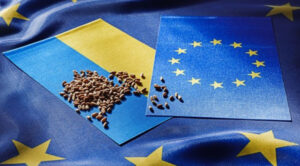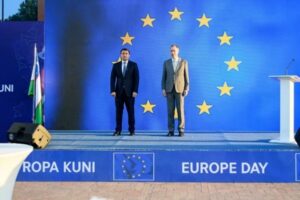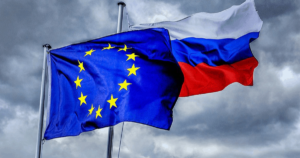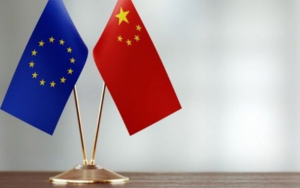
Support is lowest in France, Spain and Poland, while 21% back authoritarian rule under certain circumstances
Only half of young people in France and Spain believe that democracy is the best form of government, with support even lower among their Polish counterparts, a study has found.
A majority from Europe’s generation Z – 57% – prefer democracy to any other form of government. Rates of support varied significantly, however, reaching just 48% in Poland and only about 51-52% in Spain and France, with Germany highest at 71%.
More than one in five – 21% – would favour authoritarian rule under certain, unspecified circumstances. This was highest in Italy at 24% and lowest in Germany with 15%. In France, Spain and Poland the figure was 23%.
Nearly one in 10 across the nations said they did not care whether their government was democratic or not, while another 14% did not know or did not answer.
Thorsten Faas, a political scientist at Berlin’s Free University, who worked on the study, said: “Among people who see themselves as politically to the right of centre and feel economically disadvantaged, their support of democracy sinks to just one in three.
“Democracy is under pressure, from within and without.”
The study was carried out in April and May. More than 6,700 people between the ages of 16 and 26 in Britain, Germany, France, Spain, Italy, Greece and Poland responded to the ninth annual survey by the YouGov institute for the Tui Foundation, which funds projects dedicated to youth in Europe.
Forty-eight per cent worry that the democratic system in their own country is endangered, including 61% in Germany, where the economy – Europe’s biggest – is ailing and the far right has made significant inroads, fuelled in part by increased backing from young voters.
The return of Donald Trump to the White House, the rise of China, and Russia’s full-scale invasion of Ukraine have shifted power away from Europe in the respondents’ perception, with just 42% counting the EU among the top three global players.
Despite – or perhaps because of – Brexit, the figure was highest among Britons at 50%. Of those surveyed in the UK, 73% wanted a return to the EU, while nearly half of young Europeans (47%) sought stronger ties between the EU and Britain.
The US was seen by 83% as part of the power trio, followed by China with 75% and Russia on 57%.
Rising polarisation is also driving young Europeans to the ideological fringes along with their elders, but a notable gender divide has emerged in the process.
Nearly one in five – 19% – described themselves as politically right of centre, up from 14% in 2021, while 33% called themselves centrists, 32% as leftist and 16% without any designation.
Women in Germany, France and Italy identified as progressive in higher numbers than four years ago, while young men in Poland and Greece have grown more conservative in the same period.
Support for tougher restrictions on migration has grown across the board since 2021, to 38% from 26%.
Most young Europeans expressed hope in the EU’s potential, and two in three overwhelmingly supported their country remaining in the bloc if it still was. But 39% described the EU as not particularly democratic and just 6% said their own national governments worked well, with little need for significant changes.
More than half – 53% – felt the EU was too focused on details and trivial matters. They would like the bloc to tackle the high cost of living, bolster defence against external threats and create better conditions for companies to improve the economy.
Elke Hlawatschek, the head of the Tui Foundation, said: “The European project, which has brought us peace, freedom of movement and economic progress for decades, is seen as unwieldy.”
Greek people see the strongest need for fundamental overhaul of their political system and are most sceptical about the EU, which Faas described as rooted in enduring trauma of the eurozone debt crisis that drove their country’s economy to the brink.
Despite stronger support for climate protection among young Europeans, just one in three said it should take priority over economic growth. The figure has slipped from 44% in 2021.
BREXIT, EUROPE, EUROPEAN UNION, FRANCE, GERMANY, ITALY, NEWS, Young people

The European Union has decided to reinstate quotas on agricultural imports from Ukraine, which were suspended at the start of the full-scale invasion in 2022 to support Ukrainian farmers. The updated restrictions will come into force on June 6, Bloomberg reported, citing the European Commission.
According to a European Commission representative, the quotas will be a temporary measure. The EU is currently working on revising the deep and comprehensive trade area between the EU and Ukraine. The quotas, available until the end of 2025, will amount to 7/12 of the usual annual volumes.
No member state opposed the decision. Sweden, the Czech Republic, Denmark, Estonia, Finland, Germany, Ireland, and Lithuania abstained.
Bloomberg recalled that agricultural exports are crucial to Ukraine’s economy, and easy trade with the EU has helped Ukrainian farmers overcome major difficulties, including the temporary loss of their main export route through the Black Sea and production problems caused by landmines and military conscription.
However, the sharp increase in exports of relatively cheap Ukrainian goods to the EU market has sparked resistance from local farmers in countries such as Poland, Hungary, and Slovakia. This has provoked a political standoff over protectionist measures between neighboring countries, some of which, such as Poland, were previously strong allies of Ukraine.

The Central Asia-European Union Economic Forum and Investor Forum will be held in Uzbekistan in November. This was announced by the European Union Ambassador to Tashkent, Toivo Klaar, during the celebration of Europe Day on May 12.
“These forums will open up new business opportunities,” said the head of the diplomatic mission.
As a reminder, during the first Central Asia-European Union summit, which took place in April, the EU announced an investment package for Central Asia worth €12 billion for the development of four areas: transport corridors, critical raw materials, green energy, and satellite internet.
Toivo Klaar also noted that the EU is looking forward to the next Human Rights Dialogue.
In addition, the European Union is expecting a visit by Uzbekistan’s President Shavkat Mirziyoyev to Brussels this year to sign an Agreement on Enhanced Partnership and Cooperation.
“This historic visit will open a new chapter in relations between the EU and Uzbekistan, which will be deepened, diversified, and modernized in many areas,” the EU ambassador said in his speech.

The European Union has approved a 17th package of sanctions against Russia, aimed at increasing pressure on the Russian economy and limiting opportunities to circumvent previously imposed restrictions. A key element of the new package is the introduction of sanctions against Russia’s so-called “shadow fleet” — a network of ships used to circumvent sanctions and export oil.
Sanctions against the “shadow fleet”
As part of the new sanctions package, the EU has imposed restrictions on around 200 vessels linked to Russia’s “shadow fleet.” These vessels, often old and poorly insured, are used to transport Russian oil in circumvention of the restrictions in place, including a price cap of $60 per barrel.
Sanctions against companies and individuals
The new sanctions package also includes:
31 companies involved in arms supplies and sanctions evasion.
75 individuals linked to the Russian military-industrial complex, including judges involved in cases against opposition figures.
Financial institutions supporting Russia’s military actions.
Protection of critical infrastructure
The EU has also imposed sanctions on organizations and individuals involved in cyberattacks, human rights violations, and sabotage of critical infrastructure, including submarine cables and energy facilities.
Outlook
Despite the introduction of the 17th package of sanctions, additional measures are being discussed, including the possible introduction of 500% tariffs on Russian oil imports to countries that continue to purchase it. Restrictions on imports of liquefied natural gas (LNG) from Russia are also being considered.

Chinese and EU authorities have agreed to resume talks on duties on electric cars, the Chinese Ministry of Commerce said at a press conference. The talks will resume as soon as possible to create favorable conditions for investment and cooperation between Chinese and European companies, the ministry said.
US President Donald Trump announced the day before that he would impose additional 34 percent duties on goods from China and 20 percent duties on EU shipments. Earlier, he also imposed 25% duties on all car imports. In turn, the EU imposed higher duties on Chinese electric cars last year, including 17 percent for BYD, 18.8 percent for Geely and 35.3 percent for SAIC.
In January, the three companies went to the Court of Justice of the European Union to appeal the new duties. Last November, Beijing and Brussels discussed the possibility of replacing duties for China with an obligation to sell electric cars at a minimum price.
Chinese authorities, duties on electric cars, EUROPEAN UNION